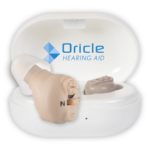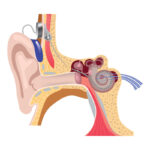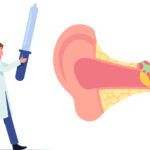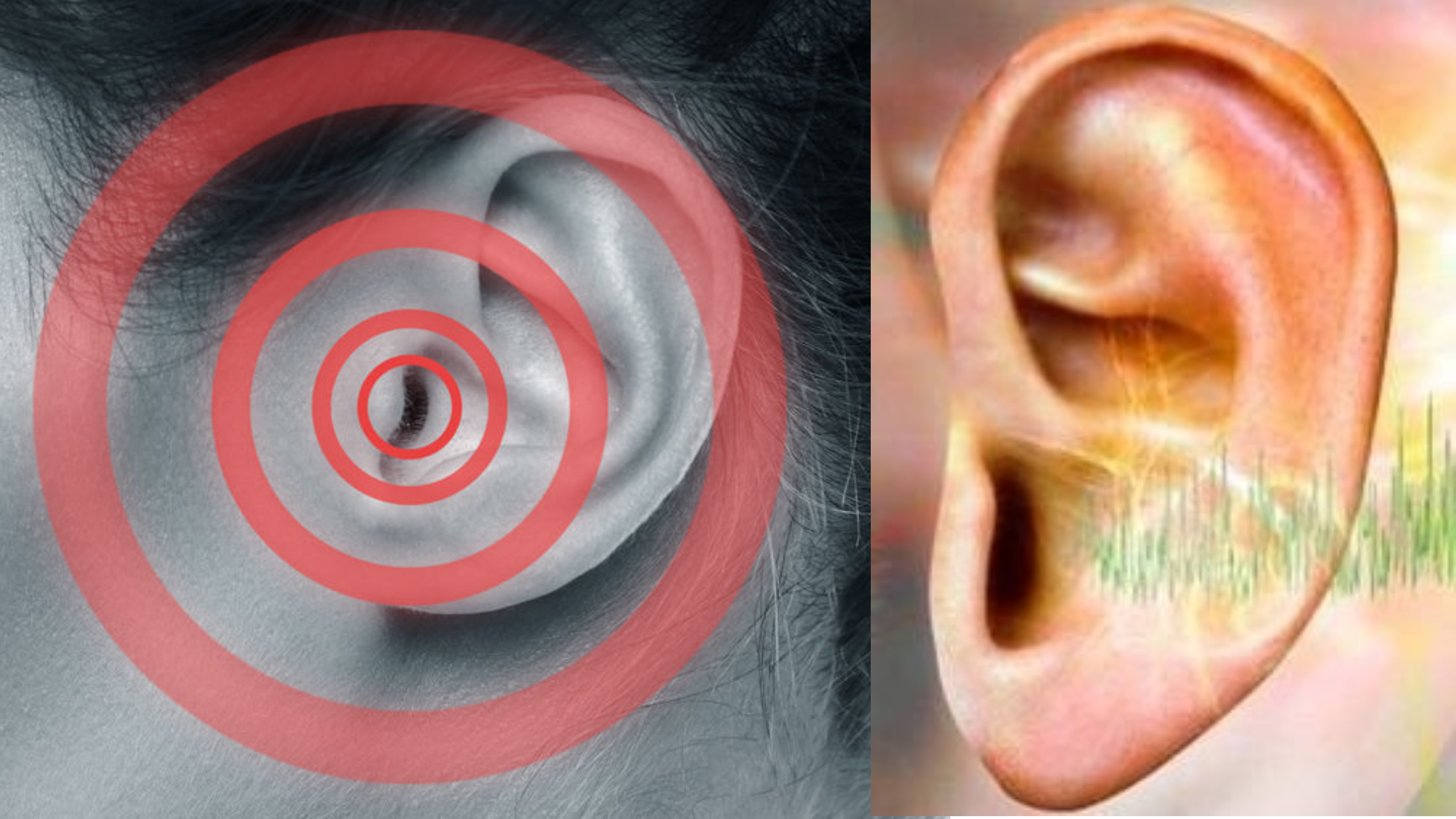Is Noise in Your Ears Tinnitus Or Something Else?
Are you experiencing noise in your ears? Is it tinnitus or another problem? Read this article to learn about the different causes and treatment options for tinnitus. In addition, you'll discover why noises in your ears might be causing your symptoms. You can even learn how to make your ears quieter. If you're looking for a permanent solution to your tinnitus, this article will help you.
Tinnitus is a ringing in the ear

Many people experience tinnitus, which is a ringing or humming sound that can be chronic or temporary. More than 50 million people in the U.S. experience tinnitus at some point in their lives, although children can develop tinnitus as well. While this condition can be bothersome, tinnitus can be treated and can go away on its own over time. However, tinnitus should not be overlooked and should always be treated as a medical condition.
The causes of tinnitus are numerous. It may be the result of a middle ear infection, allergy symptoms, or a disorder affecting the ear canal. Sometimes, the sound is caused by spasms in the muscles of the ear or palate, which do not follow a pulse. Other causes of tinnitus include otosclerosis, a disorder of excess bone in the middle ear, temporomandibular disorders, or a noncancerous tumor of the vestibular schwannoma.
Treatment for tinnitus varies from person to person. If the ringing in the ear is bothersome, it is important to visit an ENT and an audiologist to rule out any serious medical conditions. Treatment for tinnitus is geared toward alleviating the symptoms and minimizing the pain. A dehumidifier or electric fan can produce soothing sounds and improve the quality of life.
The main causes of tinnitus are not known. Some people experience intermittent or constant tinnitus, which comes and goes. Some cases may also be caused by ear infections or earwax buildup. For a full diagnosis, your doctor should determine the underlying cause. If you suspect an underlying condition, your GP should examine you and prescribe a treatment.
While tinnitus is a condition that requires treatment, it is not a condition that is easy to live with. The majority of people experience tinnitus at some point in their lives. In fact, it affects one in every six people. A medical doctor can diagnose tinnitus by listening to your heart using a stethoscope.
Pulsatile tinnitus is characterized by the sound of a heartbeat. It can be caused by a variety of problems, including middle ear infections, benign tumors, and even a blocked artery. Those with pulsatile tinnitus should visit their doctor right away to rule out underlying conditions. They should also undergo medical tests to determine whether they are causing tinnitus.
People who are exposed to loud noises or portable music devices may develop tinnitus. Those who work in noisy environments are especially at risk. Additionally, aging can lead to loss of hearing, which makes some people more susceptible to tinnitus. Moreover, men are more likely to develop tinnitus than women, and alcohol consumption can increase the risk.
Loud noises can cause tinnitus

Repeated exposure to loud noises, such as concerts or sporting events, can cause tinnitus. The constant noise can damage the hearing and can lead to a lifetime of ringing or buzzing. If you work in a loud environment, there are several tips to prevent this problem. Here are three. First, protect your ears by wearing hearing protection or earplugs. Second, avoid alcohol, which can increase the sound of tinnitus.
Lastly, age-related hearing loss, also known as presbycusis, can lead to tinnitus. It is associated with exposure to loud noises, such as using portable music devices or working in noisy environments. Loud noises may also cause tinnitus, as do smoking and alcohol consumption. In addition, excessive ear wax can also cause hearing loss and tinnitus.
Exposure to loud noises is a major cause of tinnitus. The prolonged exposure to loud noises damages nerves in the ear, causing tinnitus. Therefore, it is vital to wear hearing protection whenever you're working in an environment where loud noises are common. If you're exposed to loud noises often, it's important to use ear protection while using firearms or machinery. Even if you only hear a few sounds, turn down the volume on your headphones to avoid damaging your ears.
Occupational noise exposure has been linked to a significantly higher risk for tinnitus in workers than in other occupations. A study by the National Institute for Occupational Safety and Health showed that 15% of people with noise exposure in their jobs have tinnitus than those who have never been exposed to it. Occupational noise exposure is one of the leading causes of this condition. Even if tinnitus does not affect the ear, it still contributes to mental and emotional health problems.
There are many different causes of tinnitus. Loud noise exposure can cause both a temporary and permanent onset. Temporary tinnitus is temporary and goes away after a couple of days, while chronic tinnitus may last a lifetime. In either case, a diagnosis should be made by a doctor who specializes in ear and nose conditions.
While tinnitus can be easily treated, it is important to avoid prolonged exposure to loud noises and activities that put your ears at risk. To avoid this, wear ear protection while playing loud music, and wear headphones or earplugs. Avoid drinking alcohol, nicotine, or caffeine, as these substances can exacerbate your condition. An audiologist can help you find a treatment plan that works for your particular case.
Loud noises are another culprit. Loud noises can cause tinnitus because they amplify the sound of the ears. If you hear a high-pitched whistle, you are likely suffering from tinnitus. Whether the noise is continuous or intermittent, it is most often an unpleasant experience and can cause serious health problems. Loud noises can lead to permanent hearing loss, so it's important to minimize your exposure to these types of noises.
Treatments for tinnitus
There is no simple answer for why you have noise in your ears. Fortunately, there are treatments for noise in ears that can ease the symptoms and even prevent them from occurring. Regardless of the cause of your noise, your doctor can help you manage the symptoms and find the best treatment for you. To begin, you should schedule an appointment with your GP so that they can diagnose any underlying conditions and assess the best course of treatment.
A specialist in ear, nose, and throat (ENT) may recommend testing to rule out a serious medical issue. Hearing tests may help determine if tinnitus is the cause. In addition, you may want to consider using a dehumidifier or an electric fan to produce relaxing sounds and reduce the annoyance of your tinnitus.
Your general health and your stress levels are important factors in determining the cause of your tinnitus. Certain medications, including those that can cause ear infections and autoimmune diseases, may exacerbate your tinnitus. Your doctor may prescribe a hearing aid to help you cope with the ear noise. Some treatments for noise in ears are available without medical intervention. You can try a variety of methods, including a home treatment program, biofeedback, and relaxation therapy. In addition to using a hearing aid, you may also try cognitive behavioral therapy to reduce your stress and depression.
In some cases, tinnitus is caused by an inner ear muscle spasm that is caused by a neurological condition. Neurological disorders such as TMJ dysfunction can also cause tinnitus. If you suspect a medical cause, your doctor will perform a diagnosis and suggest a treatment. If you cannot pinpoint the cause of your noise, your physician can prescribe a steroid or another medication to help you cope with your symptoms.
Other types of noise in the ears are not caused by tinnitus. Some people suffer from both high-pitched noise and low-pitched noise. While both types are common and can be treated with over-the-counter medication, some people may need more invasive treatments such as surgery or a brain scan. If the sounds continue, a doctor will recommend a test to determine whether it is caused by a blood vessel or an organ.
Tinnitus can occur gradually or suddenly and is often accompanied by some degree of hearing loss. One third of people with this condition do not experience any visible hearing problems. However, they may experience tinnitus for brief periods following exposure to loud sounds. These episodes can last as long as an hour or two. They can also happen during the course of an activity, such as playing loud music.
Sources:
- American Tinnitus Association. Understanding the Facts. https://www.ata.org/understanding-facts
- Harvard Health Publishing. Tinnitus: Ringing in the ears and what to do about it. https://www.health.harvard.edu/diseases-and-conditions/tinnitus-ringing-in-the-ears-and-what-to-do-about-it
- National Institute on Deafness and Other Communication Disorders. Tinnitus. https://www.nidcd.nih.gov/health/tinnitus
- Centers for Disease Control and Prevention. Noise-Induced Hearing Loss. https://www.cdc.gov/niosh/topics/noise/default.html







